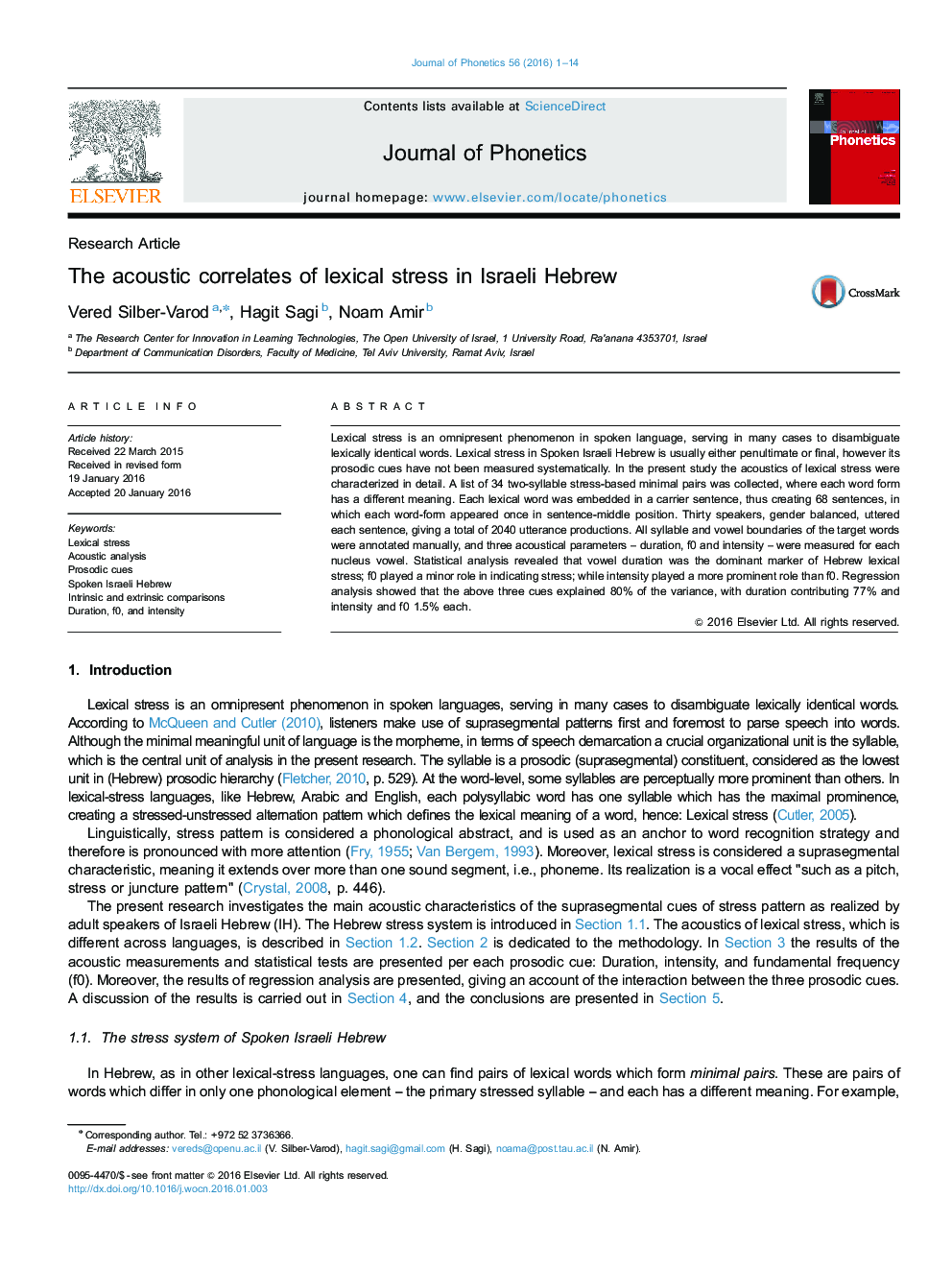| Article ID | Journal | Published Year | Pages | File Type |
|---|---|---|---|---|
| 7532829 | Journal of Phonetics | 2016 | 14 Pages |
Abstract
Lexical stress is an omnipresent phenomenon in spoken language, serving in many cases to disambiguate lexically identical words. Lexical stress in Spoken Israeli Hebrew is usually either penultimate or final, however its prosodic cues have not been measured systematically. In the present study the acoustics of lexical stress were characterized in detail. A list of 34 two-syllable stress-based minimal pairs was collected, where each word form has a different meaning. Each lexical word was embedded in a carrier sentence, thus creating 68 sentences, in which each word-form appeared once in sentence-middle position. Thirty speakers, gender balanced, uttered each sentence, giving a total of 2040 utterance productions. All syllable and vowel boundaries of the target words were annotated manually, and three acoustical parameters - duration, f0 and intensity - were measured for each nucleus vowel. Statistical analysis revealed that vowel duration was the dominant marker of Hebrew lexical stress; f0 played a minor role in indicating stress; while intensity played a more prominent role than f0. Regression analysis showed that the above three cues explained 80% of the variance, with duration contributing 77% and intensity and f0 1.5% each.
Keywords
Related Topics
Social Sciences and Humanities
Arts and Humanities
Language and Linguistics
Authors
Vered Silber-Varod, Hagit Sagi, Noam Amir,
